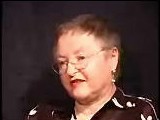You searched for: ���������������������������������������������������������������������cxfk69���just
<< Previous | Displaying results 181-190 of 574 for "���������������������������������������������������������������������cxfk69���just" | Next >>
-
Holocaust Deniers and Public Misinformation
ArticleLearn more about Holocaust deniers, public misinformation, and antisemitism.
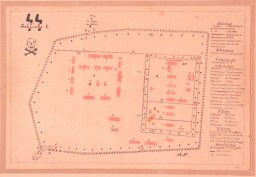
-
Charlene Schiff describes being caught while trying to smuggle food into the Horochow ghetto
Oral HistoryBoth of Charlene's parents were local Jewish community leaders, and the family was active in community life. Charlene's father was a professor of philosophy at the State University of Lvov. World War II began with the German invasion of Poland on September 1, 1939. Charlene's town was in the part of eastern Poland occupied by the Soviet Union under the German-Soviet Pact of August 1939. Under the Soviet occupation, the family remained in its home and Charlene's father continued to teach. The Germans…
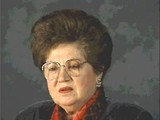
-
Ludmilla Page recalls arriving in Auschwitz instead of Oskar Schindler's munitions factory in Brünnlitz
Oral HistoryLudmilla was born to an assimilated Jewish family in Kishinev, Romania. She and her mother, a physician, were living in Poland when the Germans invaded on September 1, 1939. They were taken to Krakow. Ludmilla was forced to live in the Krakow ghetto; her mother was sent to the Warsaw ghetto. Ludmilla worked in a factory at the Plaszow labor camp for a businessman who was a friend of the German industrialist Oskar Schindler. In October 1944, Schindler attempted to save some Jewish workers by relocating them…
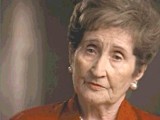
-
Hetty d'Ancona Deleeuwe describes difficulties of going into hiding
Oral HistoryThe Germans invaded the Netherlands in May 1940. After a year or so, Hetty and other Jewish children could no longer attend regular schools. The Germans took over her father's business in 1942. Hetty's father tried to prove that the family was Sephardic, and they were thus exempted from a roundup in 1943. Hetty's father decided that the family should leave Amsterdam, and Hetty was hidden with a family in the southern Netherlands. She and both her parents survived.
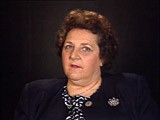
-
Benjamin (Ben) Meed describes the burning of the Warsaw ghetto during the 1943 ghetto uprising
Oral HistoryBen was one of four children born to a religious Jewish family. Germany invaded Poland on September 1, 1939. After the Germans occupied Warsaw, Ben decided to escape to Soviet-occupied eastern Poland. However, he soon decided to return to his family, then in the Warsaw ghetto. Ben was assigned to a work detail outside the ghetto, and helped smuggle people out of the ghetto—including Vladka (Fagele) Peltel, a member of the Jewish Fighting Organization (ZOB), who later became his wife. Later, he went into…
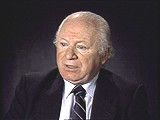
-
Esther Raab describes the uprising in Sobibor
Oral HistoryEsther was born to a middle-class Jewish family in Chelm, Poland. In December 1942, she was deported from a work camp to the Sobibor killing center in occupied Poland. Upon arrival at Sobibor, Esther was selected to work in a sorting shed. She sorted clothing and the possessions of the people killed at the camp. During the summer and fall of 1943, Esther was among a group of prisoners in the Sobibor camp who planned an uprising and escape. Leon Feldhendler and Aleksandr (Sasha) Pechersky were the leaders…
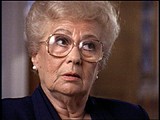
-
Benjamin (Beryl) Ferencz describes collecting evidence
Oral HistoryBen was born in a small village in the Carpathian Mountains of Transylvania in Romania. When he was an infant, his family moved to the United States. Ben attended Harvard University, where he studied criminal law. Ben graduated from Harvard University Law School in 1943. He joined a US anti-aircraft artillery battalion that was training in preparation for an Allied invasion of western Europe. At the end of World War II in Europe, Ben was transferred to the war crimes investigation branch of the US Army. He…
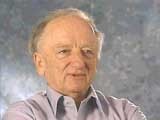
-
Thomas Buergenthal describes operations of international tribunals
Oral HistoryJudge Thomas Buergenthal was one of the youngest survivors of the Auschwitz and Sachsenhausen concentration camps. He immigrated to the United States at the age of 17. Judge Buergenthal devoted his life to international and human rights law. He served as chairman of the United States Holocaust Memorial Museum’s Committee on Conscience; was named the Lobingier Professor of Comparative Law and Jurisprudence at the George Washington University Law School; and served for a decade as the American judge at…
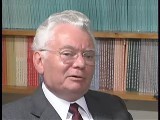
-
Ivo Herzer describes a roundup (from which he was released) of Jews by Croatian collaborators in 1941
Oral HistoryIvo grew up in a middle-class Jewish family in Zagreb. He experienced little overt antisemitism until the Germans and their allies invaded Yugoslavia in April 1941 and installed a fascist Ustasa government in Croatia. The Ustasa regime began killing Jews, Serbs, and Roma (Gypsies). Ivo's family escaped to Italian-occupied territory, where the Italians tried to protect Jewish refugees. Ivo lived in Italian internment camps, including the Rab island camp, before moving to mainland Italy in 1944. He worked…
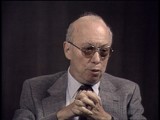
-
Sophie Turner-Zaretsky describes how she began to work through her experience as a hidden child
Oral HistorySophie was born Selma Schwarzwald to parents Daniel and Laura in the industrial city of Lvov, two years before Germany invaded Poland. Daniel was a successful businessman who exported timber and Laura had studied economics. The Germans occupied Lvov in 1941. After her father's disappearance on her fifth birthday in 1941, Sophie and her mother procured false names and papers and moved to a small town called Busko-Zdroj. They became practicing Catholics to hide their identities. Sophie gradually forgot that…
